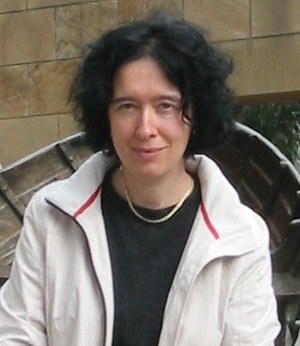IC recebe visita internacional de Pesquisadora Canadense
Tendo participado do CSBC 2014, em Brasília, a pesquisadora canadense Julita Vassileva realizará uma visita ao Instituto de Computação da UFAL, nos dias 04 e 05 de agosto de 2014. Julita Vassileva é professora da Universidade de Saskatoon, no Canadá.
- Atualizado em

Após ter participado da trigésima quarta edição do Congresso da Sociedade Brasileira de Computação (CSBC), sediado na cidade de Brasília, a pesquisadora canadense Julita Vassileva realizará uma visita ao Instituto de Computação da UFAL, nos dias 04 e 05 de agosto de 2014.
Nesta ocasião, a pesquisadora proferirá, às 15h00 do dia 04 de agosto de 2014, uma palestra nas instalações do Instituto, com o título "Mobilizing Peers in Helping, Evaluating and Mentoring Each Other".
O resumo da palestra e o currículo resumido da Professora estão transcritos abaixo, em inglês.
Resumo: Peers are a valuable educational resource that can be tapped into supporting large face-to-face classes and more recently, MOOCs. The value peers bring in not just in the additional resource of help; in a peer help exchange both parties learn, not just the recipient of the help. An old educational wisdom says that the best way to understand something is to explain it to somebody else. Our early work in the area of peer-help (the I-Help system) focused on designing frameworks that can intelligently support communities of learners in the exchange of peer help. Since about that time, online forums have been a central component of any web-based learning community, whether supporting a face-to-face class or online classes (as part of course management systems), including MOOCs. Based on anecdotal information, most of real learning in MOOCs happens in the forums, where learners communicate with peers to ask for and find help and explanations. Three new forms of engaging peers in learning together are collaborative writing, peer evaluation, and peer mentoring. In collaborative writing, learners write together an article or summary on a given topic or solve collaboratively a problem. In the process they observe each other's work, correct it, discuss, resolve conflicts and polish the result. In peer evaluation learners are engaged to review, comment and evaluate each other's work, in a way similar to the peer review process used in academic conferences. In peer mentoring, small groups of learners are put together and assigned a general topic to discuss. In a process that may be structured in some way, for example, the peer-mentees submit initial thoughts and ideas, and the peer - mentors role comment, discuss, argue until a general consensus emerges.Interesting research and design problems arise when supporting peer-help, writing, evaluation and mentoring. First, a certain level participation is essential for peer-help to be possible. Research into motivating learners to contribute has sought inspiration from theories of motivation from the area of Social Psychology and Behavioural Economics. As a result various practical incentive mechanisms to reward learners for their contributions have been designed and have recently sprung a new area - gamification - with more general applications. How to apply gamification in a classroom environment and link it with the existing evaluation system (grading)? Another set of research problems involves directly the design of the learning scenario and infrastructure. How to assign learners to review each other's work and how to compose small groups for peer mentorship so that the learners complement each other not only with respect to knowledge, but also learning styles and personality? How to evaluate the successfulness of the peer process? This invited talk will address these issues with examples from the research carried out in the MADMUC Lab over the last 15 years.
CV Curto: Julita Vassileva is a professor of Computer Science at the University of Saskatchewan, Canada. Her research areas involve human issues in decentralized software environments: user modeling and personalization, and in designing incentive mechanisms for encouraging participation and facilitating trust in web, cloud and mobile applications. She is interested in how to use personalized recommendations, games and social influence to support people in their learning and engaging in beneficial behaviours. She serves on the Editorial Boards of User Modelling and User Adapted Interaction, Computational Intelligence and IEEE Transactions on Learning Technologies.
Link para a página pessoal: http://www.cs.usask.ca/faculty/julita/

